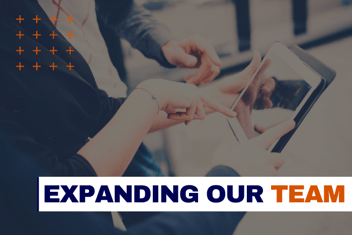Top 5 Reasons Motorcycle and Motorsport Dealers Need Sales Training

.png)
Applied Concepts has worked with hundreds of motorcycle & motorsport dealers and, as a result, has a good perspective on the training needs and challenges of these two unique industries. Our view is that motorcycle & motorsport dealers could benefit from professional sales training more than almost any other industry. The reality is that the utter lack of training is resulting in wasted opportunity and poor financial performance—not just lost sales, but lost lifetime customers; wasted advertising spend; and negative experiences that damage your brand.
Here are our top 5 reasons why every motorcycle & motorsport dealer needs to work with a sales training company.
#1: Let Your Managers Do What They Do Best
Some owners and general managers believe that their managers should be responsible for sales training. But are your managers really setup to succeed in this role? The fact is that most managers are too busy to make training a priority, are incentivized to hire fast and fire fast (leading to inefficiency), and are not trained to be trainers.
Effective sales training programs require content creation, feedback loops, expertise in modern sales techniques, accountability, spaced repetition, and educational theory, none of which is really within the wheelhouse of your average manager.
Managers in the motorcycle and motorsport industries should focus on what they do best—managing day-to-day operations and accountability. Professional sales trainers should focus on what they do best—improving lead handling to achieve marketing ROI and drive financial performance.
#2: Buyers are Enthusiasts
One of the key differences between motorcycle and motorsport dealers and car dealers is the nature of the buyer. Generally speaking, though not without exception, the buyers in the motorcycle & motorsport world are enthusiasts. This has two key implications:
- The Upside: Enthusiasts are knowledgeable and excited to talk to you.
- The Downside: Sometimes enthusiasts are more interested in talking shop than buying.
You need to train your team to harness this enthusiasm through rapport building and nurturing past relationships, while at the same time making sure your team is reliably advancing the ball closer to a sale. Sometimes enthusiasts who come to dealer consistently to look for the "next thing" need to be talked into actually pulling the trigger.
#3: Past Underinvestment in People
Historically, motorcycle & motorsport dealers have underinvested in their people. Just as their customers are enthusiasts, so are their sales reps. Although enthusiasts make some of the absolute best sales reps, the risk is that they spend too much time talking shop and not enough time converting that enthusiasm into a sale. Ultimately, the result is that sales reps in the industry have sales goals they're expected to hit but do not have the support or background to make it possible.
Lack of professional sales training results not only in lost sales, but lost lifetime customers; wasted advertising spend; and negative experiences that damage your brand.
#4: Reliance on Order Taking & Product Training
As enthusiasts themselves, sales reps in the motorcycle & motorsport industries tend to focus too much on the talking shop about their product and "order taking". They don't spend nearly enough time using rapport building to identify the customer's wants and needs, being able to match that to a product, and effectively converting the customer into a sale.
In other words, they lack skills in consultative sales. In large part, this is because dealers hire enthusiasts rather than professional sales reps and then fail to give them the support and professional development they need to be successful. Sure, new sales reps likely receive OEM-provided product training (on products that they're already pretty familiar with as enthusiasts), but lack of product training is not the problem. The problem is lack of sales training. Sales is not a craft that comes naturally to most people—it needs to be trained and practiced.
#5: Training is an Investment, Not an Expense
-1.png?width=300&name=300x300%20(18)-1.png) The most successful dealers view training as an investment that pays for itself many times over rather than an expense. We recently did a study of a large auto group and we compared their financial performance before and after they started sales training. The results were clear: the average store increased their gross profits by 10.9x the amount they invested in training.
The most successful dealers view training as an investment that pays for itself many times over rather than an expense. We recently did a study of a large auto group and we compared their financial performance before and after they started sales training. The results were clear: the average store increased their gross profits by 10.9x the amount they invested in training.
Think about the number of leads you get each month or even per year. What would the impact be of even a 1% increase in your appointment set rate, your appointment show rate, or your customer retention? The compounding & trickle down effect is huge. This is what we refer to as the "Law of Big Numbers". For example, an increase even of 5% in rate of customer retention can cause an increase as high as 75% in lifetime value.
How Can We Help?
Applied Concepts has been training motorcycle & motorsport dealers for 35 years. Our Head of Cycle & Motorsports, Ryan Miller, is a leading expert in the field of lead conversion training in your industry and has worked with hundreds of dealers like yours. We take a consultative approach, so we're happy to run a free assessment and have a conversation about what opportunities you may have to improve your store's lead handling. Learn more [HERE].

.jpg?width=325&name=300x300%20(2).jpg)


